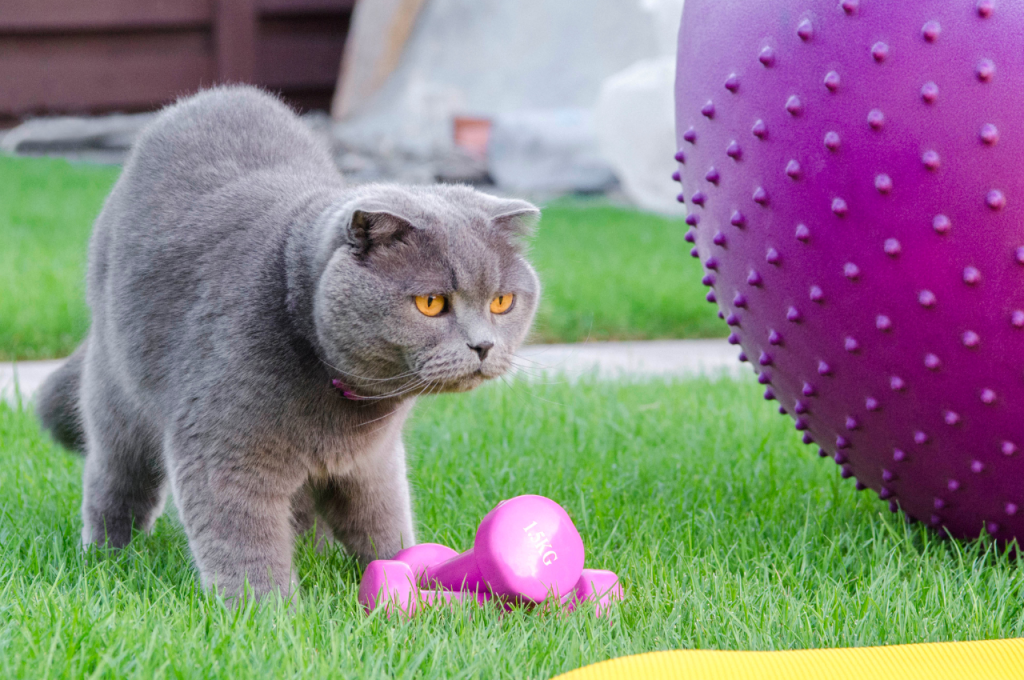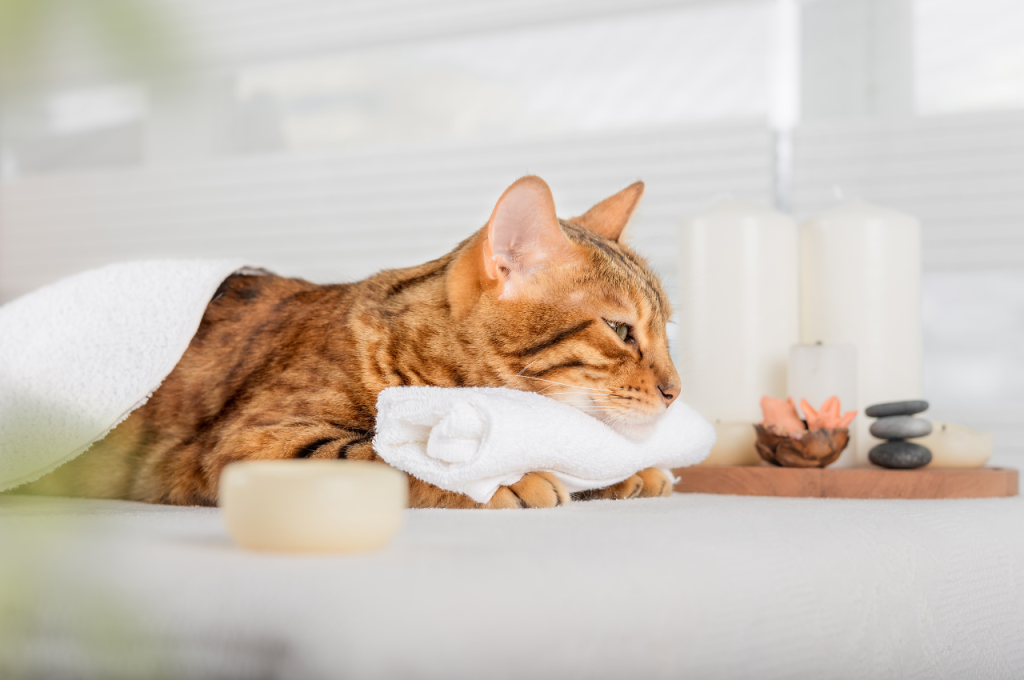To keep your cat healthy, ensure they have a balanced diet and regular exercise. Providing quality food and opportunities for play and mental stimulation are key to their well-being.
Keeping your feline friend healthy is essential for their long-term happiness and overall wellness. Cats are unique creatures with specific needs, and maintaining their health requires attention to detail. From nutrition and grooming to exercise and mental stimulation, there are various factors to consider when it comes to ensuring your cat’s well-being.
By understanding these key aspects and being proactive in meeting their needs, you can help your cat live a long, healthy, and fulfilling life. This holistic approach to cat care not only promotes physical health but also enriches the bond between you and your feline companion.
Understanding Feline Wellness
Cats are cherished members of our families, and their health and wellness are paramount. Understanding feline wellness is crucial to keeping our furry friends happy and healthy. By recognizing the importance of cat health and being aware of common health issues in cats, we can take proactive steps to ensure our feline companions live long and healthy lives.

Importance of Cat Health
Regular veterinary check-ups, proper nutrition, and maintaining a safe and stimulating environment are crucial components of ensuring your cat’s overall health and wellness. Providing appropriate vaccinations and preventative care can help protect your cat from various diseases and parasites. Monitoring your cat’s behavior and habits can also help identify any early signs of health issues, allowing for timely intervention and treatment.
Common Health Issues in Cats
Understanding the common health issues that affect cats can help pet owners recognize and address potential problems early on. Common health concerns in cats include dental issues, obesity, urinary tract problems, and infectious diseases such as feline leukemia and feline immunodeficiency virus (FIV). Knowing the signs and symptoms of these health issues can enable proactive measures to prevent or manage them effectively.
Creating A Healthy Environment
Creating a healthy environment is essential for promoting the overall well-being of your cherished cat. A nurturing and safe space not only enhances their physical health but also contributes to their mental and emotional wellness.
Providing A Balanced Diet
Ensuring that your cat receives a balanced diet is crucial for maintaining their overall health. Include a mix of high-quality wet and dry food that caters to their specific nutritional needs. Consult with a veterinarian to determine the ideal diet for your cat.
Ensuring Hydration
Ensure your cat has access to fresh and clean water at all times. Consider incorporating a fountain-style water bowl to encourage drinking. This is especially important for cats consuming predominantly dry food as it helps prevent urinary tract problems.
Offering Mental Stimulation
Mental stimulation is important for your cat’s well-being. Provide toys, puzzle feeders, and interactive play to keep your cat engaged and entertained. This can help prevent boredom and behavioral issues.
Creating A Safe Indoor Environment
Ensure your home environment is safe for your cat. Keep toxic plants out of reach, secure windows and balcony doors, and eliminate potential hazards. Providing scratching posts and vertical spaces can promote exercise and create a sense of security for your cat.
Regular Veterinary Care
Regular veterinary care is crucial for keeping your cat healthy and ensuring their overall well-being. By scheduling annual check-ups, staying up to date on vaccinations and preventive care, implementing parasite prevention measures, and monitoring their weight and body condition, you can help keep your feline friend in the best shape possible.
Scheduling Annual Check-ups
Scheduling annual check-ups with your veterinarian is essential for the health of your cat. During these appointments, the vet can perform a thorough examination to detect any early signs of illness or disease. They can also address any concerns you may have about your cat’s health or behavior. Regular check-ups allow for early intervention and can help prevent more serious health issues down the line.
Vaccinations and Preventive Care
Vaccinations play a critical role in your cat’s health by protecting them against common and potentially deadly diseases. Your veterinarian will recommend a vaccination schedule tailored to your cat’s specific needs. Regular vaccinations, along with other preventive care measures such as deworming and flea and tick prevention, help ensure your cat stays healthy and protected from harmful parasites and infections.
Parasite Prevention
Parasite prevention is an essential aspect of keeping your cat healthy. Fleas, ticks, and intestinal worms can not only cause discomfort and illness but can also transmit diseases. Your veterinarian can advise you on the most effective preventive measures for your cat, including topical treatments, oral medications, or collars. Regularly checking for and promptly treating any signs of parasites will help keep your cat parasite-free and healthy.
Monitoring Weight and Body Condition
Keeping an eye on your cat’s weight and body condition is important for their overall health. Obesity can lead to various health problems such as diabetes, arthritis, and heart disease. Conversely, significant weight loss or poor body condition may indicate underlying health issues. Regular vet visits can include weight and body condition assessments, allowing for appropriate dietary adjustments and early detection of any potential problems.
Exercise and Playtime
Keeping your cat healthy involves more than just providing food and water. Regular exercise and playtime are essential to maintaining physical and mental well-being.
Importance of Physical Activity
Physical activity is crucial for cats to prevent obesity and maintain muscle tone. It also helps in reducing stress and promoting overall vitality.
Engaging Toys and Playtime Activities
Enrich your cat’s environment with various toys and activities to keep them mentally stimulated and physically active.
Indoor and Outdoor Exercise Options
Set up a cat-friendly play area indoors with climbing structures and interactive toys for exercise. Take your cat for supervised walks outside or provide a secure outdoor enclosure for fresh air and exploration.

Regular exercise and playtime are vital for your cat’s overall health and well-being. Make it a priority in their daily routine!
Grooming and Hygiene
Caring for your cat’s grooming and hygiene plays a crucial role in maintaining their overall health and well-being.
Brushing and Bathing
- Regular brushing helps prevent mats and distribute natural oils in your cat’s fur.
- Bathing should be done occasionally based on your cat’s breed and activity level.
Dental Care and Teeth Brushing
- Brush your cat’s teeth regularly to prevent dental issues and bad breath.
- Introduce dental treats that help in cleaning your cat’s teeth while they enjoy a tasty snack.
Trimming Nails
- Regularly trim your cat’s nails to prevent overgrowth and potential scratching injuries.
- Use a cat-specific nail clipper and be gentle to avoid cutting the quick.
Ear and Eye Care
- Clean your cat’s ears gently with a damp cloth to remove dirt and wax buildup.
- Check your cat’s eyes for any signs of discharge, redness, or irritation regularly.
Stress Reduction and Mental Health
Discover strategies to reduce stress and promote mental health in your feline companion. Providing regular playtime, nutritious meals, and a comforting environment can help maintain your cat’s overall well-being. Remember to schedule routine check-ups with your veterinarian to ensure your cat stays healthy.
Stress Reduction and Mental Health
Just like humans, cats can experience stress and mental health issues. It’s important to prioritize their psychological well-being, as it can have a significant impact on their overall health and happiness. Here are a few ways you can help reduce stress and promote positive mental health for your feline friend
Creating a Safe Space
Cats need a safe and secure space where they can retreat when they feel overwhelmed or anxious. Providing them with their own designated area, such as a cozy cat bed or hiding spot, can give them a sense of security and control.
Additionally, setting up vertical spaces with cat trees or shelves can also give your cat a vantage point, allowing them to observe their environment without feeling the need to defend their territory. This can be particularly helpful in multi-cat households where competition for resources can lead to stress.
Managing Environmental Stressors
Identifying and addressing environmental stressors is crucial for your cat’s mental health. Some common stressors include loud noises, sudden changes in routine, or the presence of unfamiliar people or animals.
- Keep their environment quiet and peaceful by minimizing loud noises and disturbances. Providing a comfortable, quiet space where your cat can relax is essential.
- Stick to a consistent routine for feeding, playtime, and other activities. Cats thrive on predictability, and a stable routine can help reduce their stress levels.
- When introducing new people or animals to your cat, do it gradually and in a controlled manner. This allows your cat to adjust at their own pace and reduces the risk of overwhelming them.
Social Interaction and Bonding
Social interaction and bonding are essential for your cat’s mental well-being. Cats are social creatures, and human companionship plays a significant role in their emotional development. Spend quality time with your cat through play sessions that activate their natural hunting instincts. Feather toys, laser pointers, and puzzle toys are great options to engage your cat physically and mentally.
Moreover, interactive toys that dispense treats or make sounds can provide cognitive stimulation and keep your cat entertained when you’re not available to play together.
Detecting Early Signs of Illness
Detecting early signs of illness in your cat is crucial for maintaining their overall health. Cats are known for hiding their discomfort, so being vigilant in observing their behavior and recognizing unusual symptoms can help catch any issues in their early stages. In this section, we’ll explore key areas to focus on to detect potential health issues and ensure your feline friend receives timely veterinary care.
Observing Behavioral Changes
Cats may communicate their health through changes in behavior. Observe their daily routine and note any alterations in eating habits, activity levels, or social interactions. Unusual behavior such as aggression, lethargy, or excessive hiding could signify an underlying health issue. Keeping an eye on their behavior can provide essential clues to their well-being.
Recognizing Common Symptoms
Familiarize yourself with common symptoms of illness in cats. These may include vomiting, diarrhea, changes in urination patterns, unexplained weight loss, or abnormal grooming habits. Being aware of these symptoms can aid in identifying potential health concerns at an early stage.
Knowing When to Seek Veterinary Help
Timely veterinary intervention is crucial for your cat’s health. If you observe any unusual behavior or notice common symptoms of illness, it’s important to seek professional advice promptly. Early detection and treatment are key to ensuring the well-being of your cat. Trust your instincts and consult a veterinarian if you have any concerns about your feline companion’s health.
Promoting Emotional Well-being
To ensure the overall well-being of your feline friend, it’s essential to focus on promoting their emotional well-being. Cats, like humans, experience a range of emotions and thrive in an environment that supports their emotional health. Understanding their behavior, providing enriching experiences for indoor cats, and promoting positive interactions are crucial aspects of nurturing their emotional well-being.
Understanding Cat Behavior
Cats communicate through various behaviors such as purring, meowing, and body language. Understanding these behaviors is vital in recognizing their emotional state and addressing any potential stressors or concerns.

Providing Enrichment for Indoor Cats
Indoor cats benefit from enriching environments to prevent boredom and promote emotional well-being. Providing interactive toys, climbing structures, and access to window perches can help satisfy their instincts and keep them mentally stimulated.
Promoting Positive Interactions
Promoting positive interactions with your cat involves creating a secure and loving environment. This includes regular play sessions, grooming, and cuddle time. Establishing a routine can also help cats feel secure and reduce anxiety.
Frequently Asked Questions on how do I keep my cat healthy?
Of course! Here are some frequently asked questions (FAQs) about keeping cats healthy:
1. How often should I take my cat to the vet for check-ups?
Taking your cat for regular vet check-ups at least once a year is crucial to monitor their overall health, detect any potential issues early, and ensure they are up-to-date on vaccinations.
2. What type of diet is best for my cat’s health?
Ensure your cat’s diet includes high-quality protein, hydration, essential nutrients, and a balanced blend of wet and dry food. Consult your vet to tailor a diet that suits your cat’s specific needs.
3. How can I help my cat maintain a healthy weight?
Encourage regular playtime, provide balanced meals, and monitor portion sizes to help your cat stay active and maintain a healthy weight. Avoid overfeeding and offer interactive toys for physical exercise.
Conclusion
To keep your cat healthy, implementing a well-rounded care routine is essential. By providing a nutritious diet, regular vet visits, plenty of exercise, and a stress-free environment, you can promote optimal feline well-being. Additionally, grooming your cat and keeping their living space clean helps prevent common health issues.
Remember, a proactive approach to cat health ensures a happy and thriving furry companion for years to come. Take charge of your cat’s health today!
